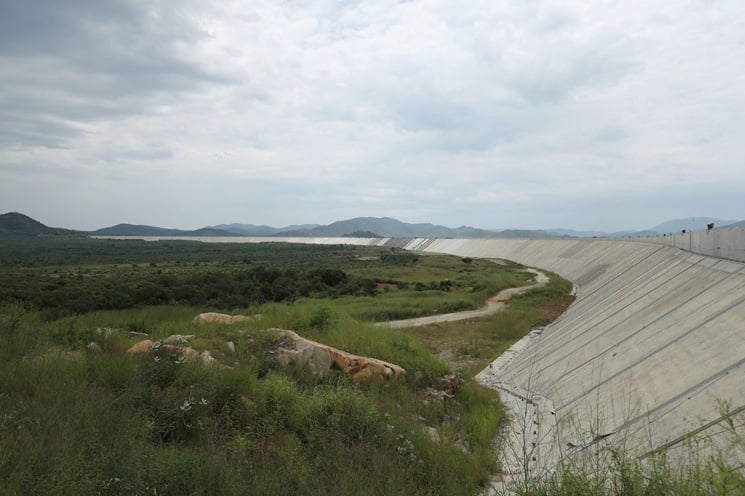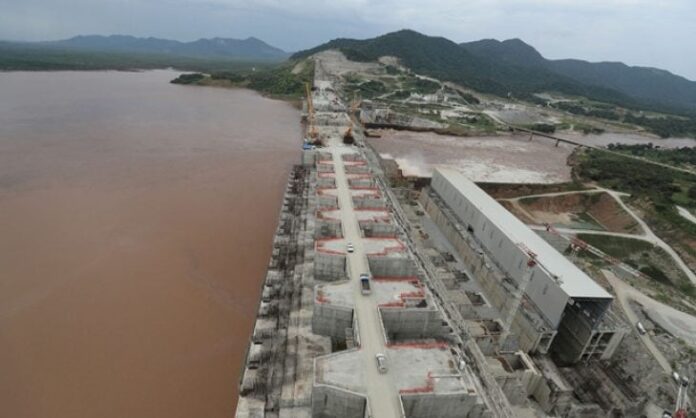Nairobi: Ethiopia officially inaugurates today, Tuesday, the largest hydroelectric dam in Africa, a project that will provide electricity to millions of citizens while deepening tensions with Egypt, one of the downstream states, and raising widespread regional concerns.
Ethiopia, the continent’s second most populous country with 120 million people, regards the $5 billion Grand Ethiopian Renaissance Dam, built on the Blue Nile, as a cornerstone of its economic development ambitions.
Construction began in 2011, and once completed the dam’s production capacity is set to reach 5,150 megawatts, up from the current 750 megawatts generated by two turbines already in operation.
Prime Minister Abiy Ahmed said Ethiopia will use the power to improve domestic access to electricity while exporting any surplus to neighboring countries.
“Blowing up this dam”

The downstream countries, Egypt and Sudan, are following the project with deep concern.
Egypt, which built the Aswan High Dam in the 1960s, fears the dam could reduce water supplies during droughts and open the door to the construction of further dams on the river. From the outset, Cairo opposed the project, arguing it violates colonial-era water treaties and poses an existential threat.
Egypt, home to around 108 million people, depends on the Nile for nearly 90% of its fresh water needs.
Tamim Khalaf, spokesperson for the Egyptian Foreign Ministry, told Reuters on Monday that Cairo “will continue to closely monitor developments on the Blue Nile and exercise its right to take all appropriate measures to defend and protect the interests of the Egyptian people.”
Sudan has joined Egypt’s calls for a binding legal agreement on the dam’s filling and operation, although it could also benefit from improved flood management and cheaper electricity.
Former US President Donald Trump openly backed Cairo’s position during his first term, warning of the gravity of the situation and suggesting that Egypt might go so far as to “blow up the dam.” However, his mediation efforts did not lead to an agreement.
“Not a threat”
Ethiopia insists the project is a sovereign right and has moved ahead with its plans. It began filling the reservoir gradually in 2020, assuring that the dam will not cause serious harm to downstream countries.
In a speech to parliament last July, Abiy Ahmed said: “The Renaissance Dam is not a threat but a shared opportunity… The energy and development it will generate will not uplift Ethiopia alone.”
Independent studies indicate that no major disruptions to water flow have been recorded so far, thanks to heavy rainfall and a cautious five-year filling policy.
Magnus Taylor of the International Crisis Group noted that the dam has come to symbolize national unity for Ethiopia, a country beset by ethnically driven internal conflicts. “The idea that Ethiopia should be able to build a dam on its own territory and not take instructions from Egypt is something most Ethiopians agree on,” he said.
According to local media, the National Bank of Ethiopia financed 91% of the project, while citizens contributed 9% through bond purchases and donations, with no foreign aid involved.
Off the grid
The dam’s reservoir covers an area larger than Greater London. The government says it will ensure a steady water flow for hydropower generation and irrigation, while reducing risks from floods and droughts.
Nevertheless, only about half of Ethiopians are connected to the national grid, meaning rural communities may have to wait some time before reaping the benefits of the project.
Matt Bryden of the Sahan Research think tank said relations with Egypt have deteriorated over the past year and could worsen further, particularly after Cairo backed Addis Ababa’s regional rivals—Eritrea and Somalia—on access to the Red Sea.
He added: “The idea that Egypt, as a strategic rival, could dictate to Ethiopia what it can do, whether in relation to Nile waters or Red Sea access, is entirely unacceptable to Addis Ababa.”
Reuters\Al-Yurae


